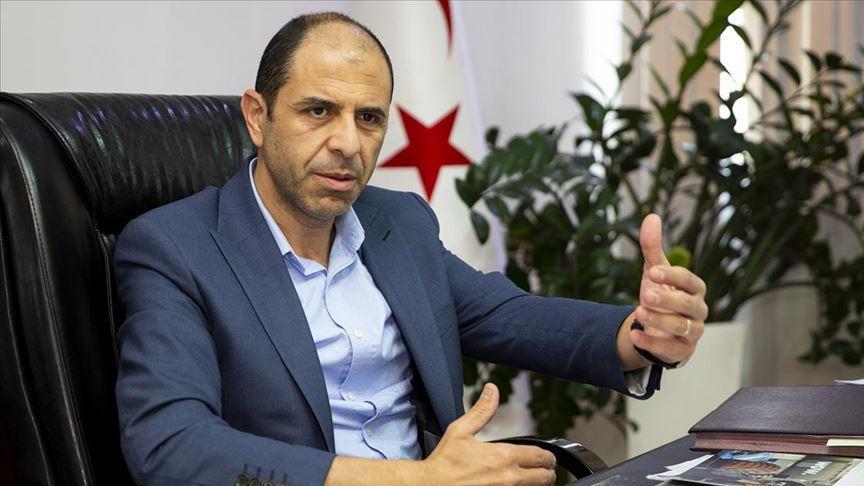Turkish Cypriot FM suggests status change for ghost town Varosha
NICOSIA

The status of Varosha, a ghost town in the Turkish Cypriot-controlled Famagusta city, needs to be changed to break the status quo because no common vision appears for the near future, Turkish Cypriot Deputy Prime Minister and Foreign Minister Kudret Özersay has said.
“The closed Varosha has become a symbol of the status quo in Cyprus over the years. Therefore, after 50 years of negotiation with no results and no common vision between the parties, a change [in the status of] Varosha is needed to overturn the status quo. It is necessary to break this in both people’s perception and reality because there is a bit of an irrational situation there,” Özersay told state-run Anadolu Agency.
“Varosha is not on the government’s program, but since we have a similar vision we aim to uncover the scientific data, accordingly shape the correct policy and make it come true in the future,” he added.
“Greek Cypriots say we need to talk about [Varosha] and it needs to re-open under United Nations,” he said.
But talks on Varosha with the Greek Cypriots will be futile since they do not cooperate on the natural gas reserves in the eastern Mediterranean, which is in the territory of Turkish Cyprus, because it is an “issue of sovereignty,” Özersay said.
Tension in the Mediterranean has been running high, with the EU threatening sanctions on Turkey due to its gas exploration activities in the eastern part of the sea. The Greek Cypriot administration on the island refused an offer by the Turkish Cypriot government to conduct joint drilling activities.
If Greek Cypriots want to change the situation, they need to reconsider their approach, he added.
“So let’s continue to wait for the closed Varosha, which is considered to be part of the territorial adjustment, and in the context of a comprehensive solution. Life goes on. Why is there life going on in other parts of this island, which is the subject of a comprehensive solution, and why should life be frozen in Varosha?” Özersay said.
“If we are talking about an international friction, especially an ethnic one, the parties should at least have similar needs, even if they are not in the same direction for a resolution. This mutual need does not exist, especially with the conditions of the Greek Cypriot side,” he added.
The fact that Greek Cyprus became a member of the EU without solving the Cyprus issue actually hinders the resolution process, according to Özersay.
“If Greek Cyprus can become a member of the EU without solving the Cyprus issue, gets treated as the sole legal government and is told that is can extract natural gas and transfer it to the world’s markets, then ‘why should the Cyprus issue be solved’ is a fair question,” he said.
“A federal partnership under these conditions does not seem realistic,” he added.
To solve these issues, according to him, either the existing conditions need to be changed for a federal partnership or new ideas are needed to be discussed if the current situation carries on.
















